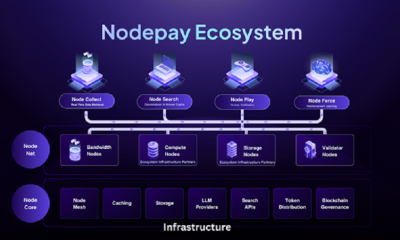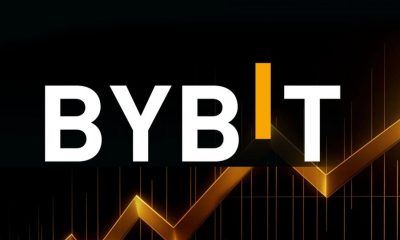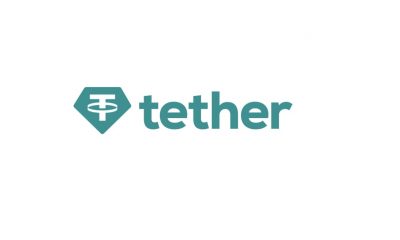Economy
Understanding Slippage in Crypto Exchanges and How Swapzone Helps Reduce It
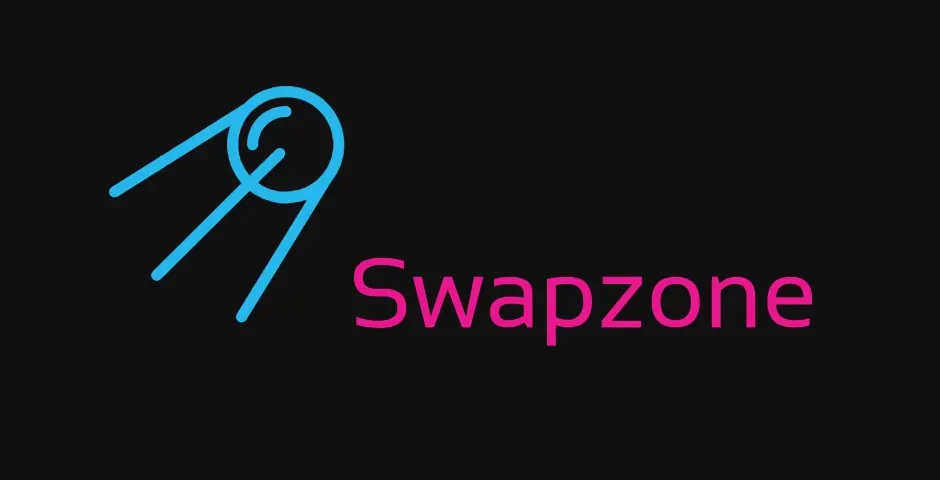
Introduction
Slippage is a common concern for crypto traders who use the best crypto exchange, especially during periods of high market volatility. It can lead to unexpected price changes between the time a trade is initiated and when it is executed. Understanding slippage and how to minimize it is crucial for optimizing trading outcomes. In this article, we’ll explore what slippage is, its causes, and how Swapzone’s advanced aggregation system helps reduce it for a smoother trading experience and crypto swap.
What Is Slippage in Crypto Trading?
Slippage refers to the difference between the expected price of a cryptocurrency trade and the actual price at which the trade is executed. It typically occurs when market conditions change rapidly, leading to discrepancies in pricing. Slippage can be either positive or negative:
- Positive Slippage: The executed price is better than the expected price, resulting in more favorable trade outcomes.
- Negative Slippage: The executed price is worse than the expected price, leading to potential financial loss.
Causes of Slippage in Crypto Exchanges
Several factors contribute to slippage in cryptocurrency markets:
1. Market Volatility
Crypto markets are known for their rapid price fluctuations. High volatility increases the likelihood that the price will change between the time a trade is placed and when it is executed.
2. Liquidity Levels
Liquidity refers to how easily an asset can be bought or sold without affecting its price. Lower liquidity, especially for less common tokens, can cause larger slippage due to fewer matching orders in the order book.
3. Large Trade Sizes
Executing large orders may consume multiple price levels in the order book, resulting in slippage. This is particularly common on smaller exchanges with limited order book depth.
4. Execution Speed
Delays in trade execution, whether due to network congestion or slow processing times, can lead to price differences and increased slippage.
How Swapzone Helps Reduce Slippage
Swapzone’s cryptocurrency aggregation model is designed to minimize slippage by leveraging advanced technology and broad market access. Here’s how Swapzone helps users reduce slippage:
1. Real-Time Rate Comparison
Swapzone continuously collects real-time data from over 20 exchange partners, allowing users to access the most up-to-date rates. This minimizes the risk of price discrepancies during trade execution.
2. Access to Multiple Liquidity Pools
By aggregating offers from both centralized and decentralized exchanges, Swapzone taps into a vast network of liquidity. This reduces the chances of encountering slippage, even for large trades.
3. Smart Order Routing
Swapzone’s algorithm automatically identifies the best route for each trade, optimizing execution across multiple providers. This ensures users receive the most favorable rates with minimal price impact.
4. Transparent Pricing
Swapzone displays all fees and costs upfront, allowing users to make informed decisions. Clear and transparent pricing reduces uncertainty and the risk of hidden slippage.
5. Customizable Options
Users can choose between the best rate or fastest execution options. This flexibility allows traders to prioritize speed or price efficiency based on their needs, further minimizing slippage risks.
Tips to Minimize Slippage When Using Swapzone
In addition to Swapzone’s advanced technology, users can take additional steps to reduce slippage:
- Monitor Market Conditions: Trade during periods of lower volatility to avoid sudden price movements.
- Split Large Trades: Divide large transactions into smaller orders to prevent significant price impact.
- Use the Best Rate Option: Select the best rate offer on Swapzone to secure the most competitive pricing.
Conclusion
Slippage is a critical factor to consider when trading cryptocurrencies, but with the right tools, it can be effectively minimized. Swapzone’s real-time data collection, smart order routing, and access to multiple liquidity sources provide a reliable solution for reducing slippage. By leveraging Swapzone’s capabilities and applying best practices, users can execute more accurate and cost-effective crypto swaps with confidence.
Economy
Petrol Station Owners Caution Refiners Against Importing Substandard Crude Oil

By Adedapo Adesanya
The Petroleum Products Retail Outlets Owners Association of Nigeria (PETROAN) has cautioned refinery operators against importing substandard crude oil, following the expiry of the Naira-for-crude deal.
In a statement signed by its National Public Relations Officer, Mr Joseph Obele, the association said imported crude must meet global standards to ensure the production of high-quality petroleum products.
The group stressed that Nigerian crude oil, classified as Sweet Crude due to its low sulfur content of less than 0.5 per cent – ranks among the best in the world, and importation possess a high risk.
“We see no reason why imported crude oil should be of lower standards. The importation of substandard crude oil will compromise the quality of petroleum products, undermine the growth of Nigeria’s oil and gas industry, and ultimately harm consumers.”
PETROAN also expressed concern over speculations that petroleum product prices may rise following the expiration of the naira-for-crude arrangement and called for continued access to imported refined petroleum products to stabilize prices and ensure energy sufficiency.
“The permutations in the media that petroleum prices might increase as the Naira-for-crude deal comes to an end is a serious concern to PETROAN. In order to avoid this scenario, we advocate that the window for importing refined petroleum products should remain open.”
The group urged regulatory agencies to conduct rigorous laboratory testing on all crude oil imports to verify their quality.
“We call on regulatory agencies to be on high alert and conduct thorough laboratory analysis on all crude oil imports to ensure they meet the required standards. We also urge the relevant authorities to ensure that refinery operators adhere to the highest operational standards.”
The association further called on the Minister of State for Petroleum Resources (Oil), Mr Heineken Lokpobiri, to conduct a comprehensive review of the Naira-for-crude initiative to determine the next steps in Nigeria’s energy sector.
“The reforms introduced by the Petroleum Industry Act, PIA, encourage competition in the downstream sector. Competition is a catalyst for price reduction in any sector. We believe that as the market adjusts to the new realities, prices will stabilize and eventually decrease.”
PETROAN also announced plans to conduct independent laboratory testing on refined petroleum products.
“We will conduct laboratory testing on refined petroleum products to determine which refinery or depot our members should buy from. This is to ensure that our members and the Nigerian public are not sold substandard products.”
Economy
Unlisted Securities Investors Gain N4.55bn After Previous Day’s Loss

By Adedapo Adesanya
The NASD Over-the-Counter (OTC) Securities Exchange bounced back on Thursday, April 3 from its previous day’s loss, gaining 0.24 per cent at the close of business.
This increased the NASD Unlisted Security Index (NSI) by 7.78 points to 3,316.34 points from the preceding trading day’s 3,308.46 points and raised the portfolios of unlisted securities investors by N4.55 billion as the market capitalisation ended at N1.915 trillion compared with Wednesday’s N1.910 trillion.
This growth occurred after the bourse finished with three price gainers and one price loser, IPWA Plc, which shed 5 Kobo to end at 50 Kobo per share, in contrast to midweek’s value of 55 Kobo per share.
Business Post reports that FrieslandCampina Wamco Nigeria Plc gained N2.16 to close at N38.66 per unit versus N36.50 per unit, First Trust Microfinance Bank Plc appreciated by 2 Kobo to 58 Kobo per unit from 56 Kobo per unit, and Food Concepts Plc rose by 1 Kobo to N1.18 per share from N1.17 per share.
Data indicated that there was a decrease of 95.9 per cent in the volume of securities bought and sold by the market participants to 372,568 units from the 9.1 million units transacted in the previous trading day.
Equally, the value of transactions slid by 43.7 per cent to N4.1 million from N7.2 million, and the number of deals went up by 81.8 per cent to 40 deals from 22 deals.
When the market ended for the session, Impresit Bakolori Plc was the most active stock by volume on a year-to-date basis with 533.9 million units worth N520.9 million, followed by Industrial and General Insurance (IGI) Plc with 70.2 million units sold for N23.8 million, and Geo Fluids Plc with 44.2 million units valued at N89.4 million.
FrieslandCampina Wamco Nigeria Plc finished the trading day as the active stock by value on a year-to-date basis with 13.8 million units valued at N531.6 million, trailed by Impresit Bakolori Plc with 533.9 million units worth N520.9 million, and Afriland Properties Plc with 17.8 million units sold for N364.2 million.
Economy
Naira Crashes to N1,550/$1 at NAFEM, N1,560/$1 at Parallel Market
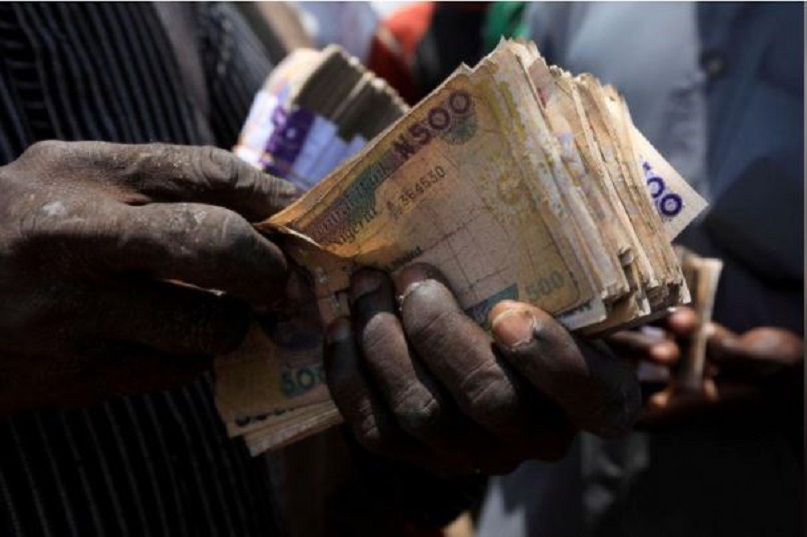
By Adedapo Adesanya
The value of the Naira crashed to its lowest level in weeks to N1,550.74/$1 in the Nigerian Autonomous Foreign Exchange Market (NAFEM) on Thursday, April 4, as wider tariffs instituted by the United States took its toll on it.
At the currency market yesterday, the exchange rate of the Nigerian currency to its American counterpart depreciated by 1.25 per cent or N19.11. On Wednesday, the price was N1,531.63/1$.
The US President, Mr Donald Trump, unveiled sweeping reciprocal tariffs on Wednesday, announcing baseline 10 per cent duties on imports from all trading partners, and much higher rates for some nations.
Nigeria, a trading partner, was hit with a 27 per cent import tariff and a 14 per cent reciprocal tariff.
According to African Export and Import Bank (Afreximbank), the move will likely affect the country’s FX earnings as it could trigger a weakness in oil demand.
At the spot market, the local currency tumbled against the Pound Sterling yesterday by N60.63 to sell for N2,043.29/£1 compared with the preceding day’s N1,982.66/£1 and against the Euro, it lost N65.42 to finish at N1,722.38/€1 versus N1,656.96/€1.
At the black market, the domestic currency slumped against the greenback during the trading day by N5 to sell for N1,560/$1, in contrast to midweek’s rate of N1,555/$1.
As for the cryptocurrency market, it remained bearish as traders worried about the risk associated with President Donald Trump’s 10 per cent baseline levy on all imports to the country.
Solana (SOL) dropped 1.9 per cent to sell at $116.39, Binance Coin (BNB) depreciated by 1.8 per cent to $595.28, Ethereum (ETH) dwindled by 1.2 per cent to $1,801.26, Dogecoin (DOGE) fell by 0.6 per cent to $0.1642, and Bitcoin (BTC) went down by 0.2 per cent to $83,069.98.
However, Cardano jumped by 0.7 per cent to $0.6531, Ripple (XRP) increased its value by 0.7 per cent to $2.05, and Litecoin (LTC) soared by 0.3 per cent to $83.78, while the US Dollar Tether (USDT) and the US Dollar Coin (USDC) remained unchanged at $1.00 each.
-

 Feature/OPED5 years ago
Feature/OPED5 years agoDavos was Different this year
-
Travel/Tourism9 years ago
Lagos Seals Western Lodge Hotel In Ikorodu
-

 Showbiz2 years ago
Showbiz2 years agoEstranged Lover Releases Videos of Empress Njamah Bathing
-

 Banking7 years ago
Banking7 years agoSort Codes of GTBank Branches in Nigeria
-

 Economy2 years ago
Economy2 years agoSubsidy Removal: CNG at N130 Per Litre Cheaper Than Petrol—IPMAN
-

 Banking2 years ago
Banking2 years agoFirst Bank Announces Planned Downtime
-

 Sports2 years ago
Sports2 years agoHighest Paid Nigerian Footballer – How Much Do Nigerian Footballers Earn
-

 Technology4 years ago
Technology4 years agoHow To Link Your MTN, Airtel, Glo, 9mobile Lines to NIN



